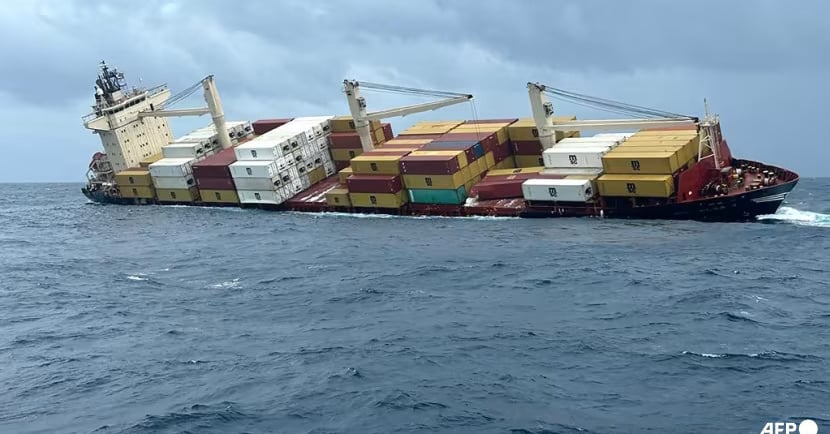When the Ocean Isn't on Your Side: Why Freight Forwarders’ Liability and Marine Cargo Insurance Matter


When the MSC ELSA 3 sank off India’s coast—spilling oil and hazardous cargo into the Arabian Sea—it was a stark reminder of the scale and unpredictability of maritime risks.
The sinking came just weeks after another container vessel, the MV Wan Hai 503, caught fire while carrying hazardous materials.
These are not edge cases—they’re warnings. Incidents like these aren’t just catastrophic for cargo owners—they carry ripple effects for freight forwarders, logistics firms, port authorities, and the environment. And they raise an urgent question: Are you properly covered when something goes wrong?
As a corporate insurance specialist who regularly works with freight forwarders and supply chain clients, I’ve seen how the right protection doesn’t just save money—it protects your operations, your brand, and your client relationships.
What’s the Risk, Really?
The MSC ELSA 3 incident and other recent maritime fires highlight three core risks logistics professionals must plan for:
1. Your Client’s Goods Get Lost or Damaged
Marine cargo insurance protects the goods being transported—by sea, air, or land. Without it, your clients are exposed to total loss due to fire, sinking, weather, theft, or accidents.
Even if your role is “just coordination,” a missing shipment without coverage can still point fingers your way.
2. You Get Pulled Into the Blame Game
Freight forwarders face liability even if they don’t physically touch cargo. Mistakes in documentation, misdeclared hazardous goods, customs delays, or even subcontractor errors can trigger claims. This is where Freight Forwarder’s Liability (FFL) insurance becomes essential. It protects your business from legal and financial fallout tied to errors or omissions.
3. The Spillover Risk—Environmental, Legal, and Reputational
In major incidents, claims often extend beyond cargo value. Environmental cleanup, third-party damages, or injured crew can lead to high-cost claims. This is where Protection & Indemnity (P&I) insurance steps in, covering liability that falls outside conventional cargo or freight policies.
Real-World Example: What Happens When It’s Not Covered
After the MSC ELSA 3 sank, hundreds of containers were lost—including hazardous materials. If a freight forwarder arranged that shipment without proper cargo insurance or verified declarations, they could be liable—not just to their client, but to port authorities, insurers, and even governments.
It’s not just about replacing goods. It’s about who bears the responsibility when things go wrong—and how far that liability stretches.
Aligning Coverage to Your Operations
Every freight and logistics business is different. The key is to ensure your insurance stack reflects:
Your Role: Are you a principal, agent, or subcontractor?
Your Volume: More shipments = greater exposure
Your Cargo Profile: Hazardous? High-value? Perishable?
Your Clients’ Expectations: Do they assume they’re covered—or know they aren’t?
Why It Matters to More Than Just Risk Teams
Cargo insurance isn’t just about claims. It’s about:
Preserving trust when incidents occur
Ensuring continuity in global supply chains
Protecting your brand in a reputational crisis
And in an age where logistics is under more pressure than ever, that protection isn’t a luxury—it’s part of your value proposition.
Why Work With Jacky Ong
I work with logistics companies and freight forwarders across the region to build insurance programs that reflect how they actually operate—not just what a standard policy says.
With a background in financial planning and a deep focus on risk, I understand both the big picture and the fine print. I also work closely with HR and operational leads to ensure coverage supports people, not just assets.
📩 Let’s talk before the next incident makes the headlines. Visit jackyong.sg to connect.
The ocean is unpredictable. Your coverage doesn’t have to be.